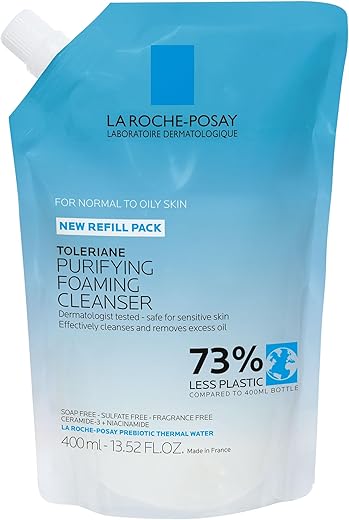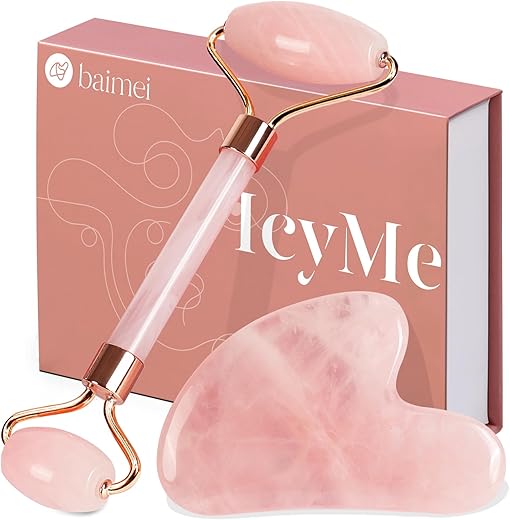
The Best Facial Masks for Acne-Prone Skin
If you’ve ever struggled with acne-prone skin, you know how frustrating it can be to find products that actually work. It feels like a never-ending battle, constantly searching for the solution that will finally give you the clear, blemish-free complexion you’ve always dreamed of. Well, look no further. In this blog post, we’re diving into the world of facial masks specifically designed for acne-prone skin. We understand the struggles you face and want to offer our empathy and support. So sit back, relax, and get ready to discover the best facial masks that can help you on your journey to clearer, healthier skin.
Trending Facial Masks for a Radiant Complexion






Understanding Acne-Prone Skin
Acne is a common skin condition that affects millions of people worldwide. It occurs when hair follicles become clogged with oil and dead skin cells, leading to the formation of pimples, blackheads, and whiteheads. Acne-prone skin is characterized by a higher susceptibility to developing these blemishes. In this blog section, we will delve into the characteristics and causes of acne-prone skin, so you can better understand how to care for it and select the right facial masks.



Characteristics of Acne-Prone Skin
Acne-prone skin exhibits several distinct characteristics that set it apart from other skin types. These include:
- Excess Oil Production: People with acne-prone skin tend to have overactive oil glands, resulting in excessive sebum production. This oil can clog pores and contribute to acne.
- Enlarged Pores: The pores of acne-prone skin are often larger in size, making them more prone to blockages. This can lead to the formation of blackheads and whiteheads.
- Inflammation: Acne-prone skin is more susceptible to inflammation, which can exacerbate existing breakouts and cause redness and swelling.
- Uneven Texture: Due to the presence of acne, the texture of acne-prone skin may appear uneven, with rough patches and acne scars.
Causes of Acne-Prone Skin
Understanding the underlying causes of acne-prone skin is crucial for effectively managing and treating this condition. Some common causes include:
- Hormonal Imbalances: Fluctuations in hormone levels, such as during puberty, menstruation, or pregnancy, can trigger acne breakouts.
- Excessive Sebum Production: Overactive sebaceous glands produce an excess of oil, which can clog pores and lead to the development of acne.
- Bacterial Growth: The presence of certain bacteria, particularly Propionibacterium acnes, can contribute to the inflammation and formation of acne.
- Genetic Predisposition: Acne-prone skin can be hereditary, meaning that if your parents or siblings have acne, you are more likely to develop it as well.
Selecting the Right Facial Masks for Acne-Prone Skin
Choosing the right facial masks is essential for maintaining the health of acne-prone skin. Look for masks that have the following characteristics or benefits:
- Non-comedogenic: Opt for non-comedogenic masks that do not clog pores, as this will help prevent the formation of new acne.
- Oil-control: Masks that help control excess oil production can be beneficial for acne-prone skin. Ingredients like clay or charcoal are known for their oil-absorbing properties.
- Anti-inflammatory: Look for masks with soothing ingredients like aloe vera, chamomile, or green tea extract, which can help reduce inflammation and calm acne-prone skin.
- Exfoliating: Masks that contain gentle exfoliants, such as salicylic acid or fruit enzymes, can help remove dead skin cells and unclog pores, reducing the occurrence of acne.
- Hydrating: While acne-prone skin may be oily, it still needs hydration to maintain its balance. Look for masks that provide lightweight hydration without clogging pores.
Choosing the Right Ingredients
When it comes to dealing with acne-prone skin, finding the right facial mask can make a world of difference. The secret lies in the ingredients used in these masks. In this blog section, we will dive into the key ingredients that have proven benefits in treating acne, including salicylic acid, tea tree oil, and clay. So let’s explore these ingredients and understand why they are essential for your skincare routine.



Salicylic Acid
Salicylic acid is a powerhouse ingredient when it comes to fighting acne. Here are some key benefits:
- Exfoliation: Salicylic acid penetrates deep into the pores, dissolving excess oil, dead skin cells, and other impurities. By exfoliating the skin, it helps to prevent clogged pores, which are a primary cause of acne.
- Unclogging Pores: By removing the debris and clogs from the pores, salicylic acid helps to reduce the appearance of blackheads and whiteheads.
- Anti-inflammatory: Salicylic acid has anti-inflammatory properties, which help to soothe redness and inflammation associated with acne.
Tea Tree Oil
Tea tree oil has been used for centuries as a natural remedy for various skin conditions. Here’s why it is a great ingredient for acne-prone skin:
- Antibacterial Properties: Tea tree oil has powerful antibacterial properties that can help kill acne-causing bacteria, reducing the risk of breakouts.
- Reducing Inflammation: Similar to salicylic acid, tea tree oil has anti-inflammatory properties that can calm irritated skin and reduce redness.
- Regulating Sebum Production: Excessive sebum production can contribute to acne. Tea tree oil helps to balance the production of sebum, preventing clogged pores.
Clay
Clay masks have long been used to treat acne and detoxify the skin. Here’s why clay is an effective ingredient:
- Absorbing Excess Oil: Clay has the ability to absorb excess oil from the skin, helping to control sebum production and preventing breakouts.
- Unclogging Pores: By drawing out impurities from the pores, clay masks can effectively unclog them, reducing the appearance of acne.
- Soothing and Calming: Clay masks have a cooling effect on the skin, which can help reduce inflammation and soothe irritated skin.
Choosing the Right Mask
When choosing a facial mask for acne-prone skin, it’s essential to consider the ingredients and their suitability for your skin type. Here are some key points to remember:
- Look for masks that contain salicylic acid, tea tree oil, or clay as primary ingredients.
- Consider your skin type and any specific concerns you have. Some ingredients may be more suitable for oily skin, while others may work better for sensitive or dry skin.
- Read reviews and recommendations from others who have similar skin concerns.
- Always patch test new products before applying them to your entire face to avoid any adverse reactions.
In conclusion, when it comes to treating acne-prone skin, it’s crucial to choose the right ingredients in your facial masks. Salicylic acid, tea tree oil, and clay are all excellent choices that have proven benefits in combating acne. By incorporating these ingredients into your skincare routine, you can effectively manage and improve the condition of your skin.
Top Facial Masks for Acne-Prone Skin
Are you tired of battling pesky acne breakouts? Look no further! In this blog post, we have curated a list of the best facial masks specifically formulated for acne-prone skin. These masks are designed to tackle acne, reduce inflammation, and leave your skin feeling refreshed and rejuvenated. Read on to discover the perfect mask for your skin!


1. Product A – Acne-Clearing Clay Mask
- Key Ingredients:
- Bentonite clay: Draws out impurities and unclogs pores.
- Salicylic acid: Exfoliates dead skin cells and reduces acne.
- Tea tree oil: Antibacterial properties to fight acne-causing bacteria.
- Benefits:
- Reduces excess oil production.
- Soothes inflammation and redness.
- Improves overall skin texture.
- Review:
- “This mask has been a game-changer for my acne-prone skin. It has significantly reduced my breakouts and left my skin feeling smooth and refreshed. Highly recommend!”
2. Product B – Charcoal Detoxifying Mask
- Key Ingredients:
- Activated charcoal: Absorbs impurities and toxins from the skin.
- Witch hazel: Helps control oil production and reduce inflammation.
- Aloe vera: Hydrates and calms irritated skin.
- Benefits:
- Deeply cleanses pores and removes excess oil.
- Minimizes the appearance of blackheads and whiteheads.
- Provides a cooling and soothing effect.
- Review:
- “I love how this mask leaves my skin feeling clean and detoxified. It has noticeably reduced the congestion on my face and helped keep my acne under control. Definitely a holy grail product!”
3. Product C – Tea Tree Oil Antioxidant Mask
- Key Ingredients:
- Tea tree oil: Antibacterial and anti-inflammatory properties.
- Green tea extract: Provides antioxidants to protect and heal the skin.
- Kaolin clay: Absorbs excess oil and detoxifies the skin.
- Benefits:
- Clears acne and prevents future breakouts.
- Calms irritated skin and reduces redness.
- Improves overall skin tone and texture.
- Review:
- “I have struggled with acne for years, but this mask has been a game-changer. It has significantly reduced my breakouts and left my skin feeling refreshed and balanced. I can’t recommend it enough!”
Comparison Table
| Product Name | Key Ingredients | Benefits |
|---|---|---|
| Product A | Bentonite clay, Salicylic acid, Tea tree oil | Reduces excess oil, Soothes inflammation, Improves overall skin texture |
| Product B | Activated charcoal, Witch hazel, Aloe vera | Deeply cleanses pores, Minimizes blackheads and whiteheads, Provides a cooling and soothing effect |
| Product C | Tea tree oil, Green tea extract, Kaolin clay | Clears acne, Calms irritated skin, Improves overall skin tone and texture |
Choose the facial mask that suits your needs and say goodbye to stubborn acne. Remember to use these masks regularly for best results. Your journey to clear and radiant skin starts now!
Disclaimer: Before trying any new skincare products, it’s always a good idea to consult with a dermatologist or skincare professional.
Tips for Using Facial Masks
Facial masks are an excellent addition to any skincare routine, especially for those with acne-prone skin. They can help to reduce oiliness, unclog pores, and provide a deep cleanse. However, it is important to use them correctly to maximize their benefits and avoid any potential skin irritations. In this blog post, we will share practical tips and guidelines on how to effectively use facial masks for acne-prone skin.

1. Choosing the Right Mask
- Look for masks specifically formulated for acne-prone skin. These masks often contain ingredients like salicylic acid, clay, or sulfur, which help to control oil production and unclog pores.
- Consider your skin type and concerns. If you have sensitive skin, opt for a gentle and soothing mask that won’t cause irritation.
- Read reviews and check the ingredient list to ensure the mask doesn’t contain any potential irritants or allergens.
2. Preparing Your Skin
- Cleanse your face thoroughly before applying the mask. This will remove any dirt, oil, or makeup, allowing the mask to penetrate deeply into the pores.
- Gently exfoliate your skin to remove dead skin cells and improve the mask’s effectiveness. However, be cautious with harsh scrubs that can irritate the skin.
- Steam your face or apply a warm towel for a few minutes to open up the pores, allowing the mask to work more effectively.
3. Applying the Mask
- Use clean hands or a brush to apply the mask evenly on your face, avoiding the eye and lip areas.
- Start with a thin layer and gradually build it up if needed. Applying a thick layer may not necessarily lead to better results and may take longer to dry.
- Consider using a silicone brush or spatula for hygienic application, minimizing the risk of introducing bacteria to the mask.
4. Duration and Frequency
- Follow the instructions provided with the mask for the recommended duration. Leaving it on for too long can cause skin dryness or irritation.
- As a general guideline, most masks should be left on for 10-15 minutes. However, some masks, like clay masks, may require a shorter duration to prevent excessive drying.
- Start by using the mask once or twice a week and adjust the frequency based on your skin’s response. Overuse can lead to dryness or sensitivity.
5. Removing the Mask
- Gently remove the mask with lukewarm water, using circular motions to exfoliate the skin further.
- Avoid rubbing the skin vigorously, as this can cause irritation.
- Pat your face dry with a clean towel and follow up with a moisturizer to replenish the skin’s hydration.
Achieve Clear and Radiant Skin with These Top Facial Masks
In conclusion, finding the best facial masks for acne-prone skin is crucial for managing breakouts and maintaining healthy skin. By considering the specific needs of acne-prone skin and utilizing products with targeted ingredients, individuals can take proactive steps towards clearer and more radiant skin.
Frequently Asked Questions about Facial Masks
Are there any natural ingredients or specific formulas that work best for acne-prone skin?
Yes, there are several natural ingredients and specific formulas that are known to work well for acne-prone skin. Here are a few examples:
- Tea Tree Oil: It has natural antibacterial properties that can help fight acne-causing bacteria.
- Salicylic Acid: This ingredient helps to exfoliate the skin and unclog pores, reducing the occurrence of acne.
- Benzoyl Peroxide: It kills bacteria on the skin and helps to remove excess oil, making it effective against acne.
- Witch Hazel: It has astringent properties that can reduce inflammation and soothe irritated skin.
- Green Tea Extract: Rich in antioxidants, it can help reduce inflammation and combat acne-causing bacteria.
- Aloe Vera: Known for its soothing properties, aloe vera can help calm and heal acne-prone skin.
- Retinoids: These vitamin A derivatives help in regulating cell turnover and preventing clogged pores.

Hey, I’m Ava Wilson—a skincare enthusiast and a certified esthetician. I’m dedicated to sharing my knowledge and empowering others to achieve healthy, glowing skin through simple, effective routines and natural remedies. Join me on this exciting skincare journey, and let’s unlock your skin’s potential for a confident, beautiful you.





